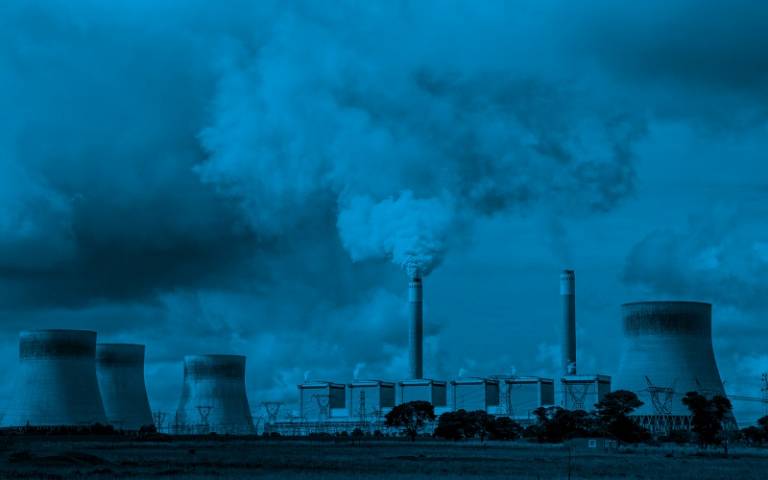ONLINE EVENT: Accelerating clean energy transitions through post-COVID recovery
15 July 2020, 1:00 pm–2:30 pm

Join UCL ISR for the first in our new Future of Fossil Fuels Industries seminar series with a presentation on Accelerating clean energy transitions through post-COVID recovery presented by Dr Fatih Birol, Executive Director of the International Energy Agency and with respondents Yacob Mulugetta from UCL STeAPP and Siân Bradley from Chatham House.
This event is free.
Event Information
Open to
- All
Availability
- Yes
Cost
- Free
Organiser
-
UCL ISR
Location
-
WebinarThis is an online event..
YouTube Widget Placeholderhttps://www.youtube.com/watch?v=BC9mKF4qEY4
About the event
Since the scale of the economic crisis brought on by Covid-19 emerged, the IEA has been leading the calls for governments to make the recovery as sustainable and resilient as possible. This means addressing the key challenges confronting the global economy in a way that also takes into account the need to build cleaner and more secure energy systems. Dr. Birol will discuss the work the IEA has been doing in response to Covid-19. This will include the findings of the IEA’s Sustainable Recovery Plan that it put out as part of its World Energy Outlook series. This plan shows how specific policies and targeted investments over the next three years could simultaneously boost economic growth, create millions of jobs and make 2019 the definitive peak in global greenhouse gas emissions. He will also cover the recently published Energy Technology Perspectives Special Report on Clean Energy Innovation, which builds on that foundation by setting out the key priorities for innovation to continually drive emissions down from that peak, all the way to net-zero.
About the speaker
Dr Fatih Birol
Dr Fatih Birol has served as Executive Director of the IEA since September 2015. Under his leadership, the IEA has undertaken its first comprehensive modernisation programme since its creation in 1974. This effort focuses on three pillars: opening the doors of the IEA to include major emerging countries, broadening the IEA’s security mandate to natural gas and electricity as well as oil, and making the IEA the global hub for clean energy technologies and energy efficiency.
Prior to his nomination as Executive Director, Dr Birol spent over 20 years at the IEA, rising through the ranks to the position of Chief Economist. Dr Birol has been named by Forbes Magazine as among the most influential people on the world’s energy scene and was recognized by the Financial Times as Energy Personality of the Year. He chairs the World Economic Forum’s (Davos) Energy Advisory Board and serves on the UN Secretary-General’s Advisory Board on ‘Sustainable Energy for All’.
About the respondents
Siân Bradley
Siân Bradley is a senior research fellow in the Energy, Environment and Resources (EER) Programme at Chatham House, where her research focuses on climate change, energy and extractives. She is author of the Chatham House reports Left Stranded: Extractives-led Growth in a Carbon Constrained World and Carbon Risk and Resilience: How Energy Transition is Changing the Prospects for Countries with Fossil Fuels and most recently Transparency in Transition: Climate Change, Energy Transition and the EITI. She has extensive experience working with fossil fuel producing countries on climate policy and low-carbon transition pathways, and with donors and development banks on the realignment of assistance with climate and sustainability goals. She has also worked more broadly on global climate, energy and resource governance. Prior to joining Chatham House in 2014, she worked as a political risk consultant and obtained an MSc in International Relations from the London School of Economics (LSE).
Yacob Mulugetta
Yacob Mulugetta is a Professor of Energy and Development Policy at the University College London; and held an academic post at the Centre for Environmental Strategy, University of Surrey, UK. He is a founding member of the African Climate Policy Centre (ACPC) at the UN Economic Commission for Africa (UNECA) based in Ethiopia where he worked as Senior Climate & Energy Specialist (2010-2013). He has 25 years of research, teaching and advisory experience specialising on the links between energy infrastructure provision and human welfare. His research is focused on three interconnected areas: energy systems and development; energy systems and climate change; and political economy of low carbon development. He is active in the Intergovernmental Panel on Climate Change (IPCC) Assessment Reports and Special Reports, as coordinating lead author (Energy) and lead author. He recently led the chapter on Energy Transitions in UNEP’s Emissions Gap Report (2019). Yacob Mulugetta is a Fellow of the African Academy of Sciences (AAS).
 Close
Close

